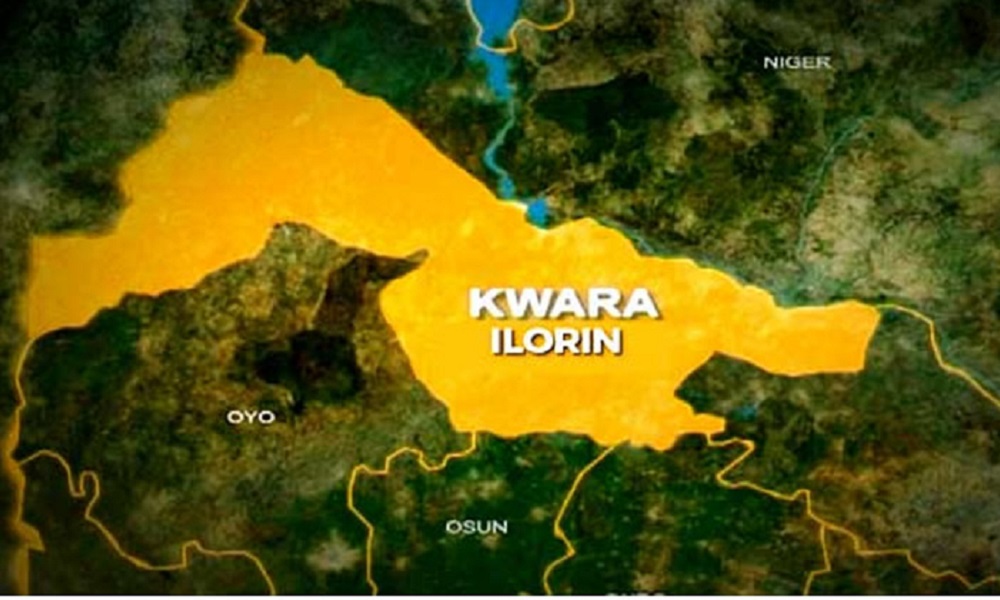News
Cash outside banks hits N4.3tn, CBN warns on scarcity

Nigeria continues to face cash scarcity despite a significant year-on-year increase of N1.59 trillion in the amount of currency held outside banks.
Data from the Central Bank of Nigeria’s money and credit statistics shows that a substantial proportion of currency in circulation remains outside the banking system, with more than 90 per cent consistently held outside formal financial institutions in 2024.
The data revealed that currency outside banks surged to N4.29tn in October 2024, accounting for 94.3 per cent of the total currency in circulation of N4.55tn.
This represents a significant year-on-year growth of 59 per cent or N1.59tn from N2.70tn in October 2023, when 89.6 per cent of the total currency was outside banks.
On a month-on-month basis, the amount held outside banks increased by 6.8 per cent or N270bn, compared to the N4.02tn recorded in September 2024.
In September 2024, currency outside banks stood at N4.02tn, representing 93.1 per cent of the total currency in circulation of N4.31tn.
This marked a year-on-year increase of 66.3 per cent compared to N2.42tn in September 2023, when 87.5 per cent of the total was outside banks. The month-on-month increase was 3.8 per cent.
In August 2024, currency outside banks rose to N3.87tn, which accounted for 93.3 per cent of the total currency in circulation of N4.14tn.
This represented a year-on-year increase of 73.9 per cent compared to N2.22tn in August 2023, when 83.6 per cent of the total currency was outside banks.
The trend continued in July 2024 with N3.67tn held outside banks, representing 90.5 per cent of the total currency in circulation of N4.05tn.
Despite efforts to promote cashless transactions, the data shows that Nigerians remain deeply reliant on cash, which could hinder the country’s push for modernised financial systems.
The President, Association of Senior Staff of Banks, Insurance, and Financial Institutions, Olusoji Oluwole, attributed the worsening cash shortage across the country to the CBN’s inability to meet the cash demands of commercial banks.’
CBN to fine banks
Meanwhile, the CBN on Friday announced a fine of N150m per branch on Deposit Money Banks found guilty of facilitating the illegal flow of mint naira notes to currency hawkers and unscrupulous agents.
Saturday PUNCH had reported the surge in the hawking of naira notes at exorbitant charges in different parts of the country, as Nigerians continue to struggle with limited access to cash in banking halls despite threats by the CBN.
The apex bank disclosed this in a circular issued on Friday, December 13, 2024 and signed by the acting Director of the Currency Operations Department, Mohammed Olayemi.
The circular revealed that the CBN was concerned about the increasing prevalence of mint naira notes being traded by hawkers, a practice the bank described as impeding efficient and effective cash distribution to customers and the general public.
The circular, which referred to an earlier directive dated November 13, 2024, highlighted the apex bank’s determination to address the commodification of the naira.
Under the directive, any branch of a financial institution found culpable will face a penalty of N150m for the first violation.
Subsequent infractions, the CBN warned, would attract stricter sanctions under the provisions of the Banks and Other Financial Institutions Act 2020.
To ensure compliance, the apex bank stated that it would increase periodic spot checks in banking halls and ATMs while deploying mystery shoppers to uncover illicit cash hawking spots across the country.
The circular read, “CBN will continue to intensify the periodic spot checks to the banking halls/ATMs to review cash payouts to banks’ customers, as well as mystery shopping to all identified cash hawking spots across the country.
“In this regard, erring deposit money banks or financial institutions that are culpable of facilitating, aiding, or abetting, by direct actions or inactions, the illicit flow of mint banknotes to currency hawkers and unscrupulous economic agents that commodify naira banknotes shall be penalised at first instance N150,000,000.00 (one hundred and fifty million naira) only, per erring branch, and at later instances, apply the full weight of relevant provisions of BOFIA 2020.”
News
You must refund N300m, Rivers State tells NBA

The Rivers State Sole Administrator, Vice Admiral Ibok-Ete Ibas (retd.), has replied to the Nigerian Bar Association regarding the reason for relocating its Annual General Conference from Port Harcourt to Enugu State.
Ibas faulted the reason cited by the NBA, describing it as misleading and uncharitable.
The Sole Administrator stated this in a statement issued in Port Harcourt on Monday by his media aide, Hector Igbikiowubo, and sent to newsmen.
He said while the NBA reserves the right to choose a venue for its conference, the association had yet to address the issue of the refund of the hosting rights paid by the state government for the conference.
The statement partly reads, “While we respect the NBA’s right to choose its conference venues, we find it curious that the association—despite its “principled position”— didn’t address the refund of the N300 million already paid by the Rivers State Government for the hosting rights of the 2025 conference.
“If the NBA truly stands on principle, it should demonstrate the same integrity by promptly returning these funds rather than benefiting from a state it now publicly discredits.”
It added, “The attention of the Rivers State Government has been drawn to the Nigeria Bar Association’s announcement dated 10th April 2025, relocating its 2025 Annual General Conference from Port Harcourt to Enugu.
The statement partly reads, “While we respect the NBA’s right to choose its conference venues, we find it curious that the association—despite its “principled position”— didn’t address the refund of the N300 million already paid by the Rivers State Government for the hosting rights of the 2025 conference.
“If the NBA truly stands on principle, it should demonstrate the same integrity by promptly returning these funds rather than benefiting from a state it now publicly discredits.”
It added, “The attention of the Rivers State Government has been drawn to the Nigeria Bar Association’s announcement dated 10th April 2025, relocating its 2025 Annual General Conference from Port Harcourt to Enugu.
News
FG extends contactless biometric passport to US, Mexico, Jamaica, Brazil

By Francesca Hangeior
The Federal Government has unveiled the second phase of its contactless biometric passport application system across its four missions in United States, Mexico, Jamaica and Brazil.
The Nigeria Immigration Service NIS disclosed this in a tweet on its ‘X’ handle signed by Service Spokesman, ACI AS Akinlabi.
The statement reads; “ain continuation of the phased Roll-Out of the Contactless Biometric Passport Application System across Nigerian Missions abroad, the Nigeria Immigration Service under its
Comptroller General, Kemi Nanna Nandap wishes to inform the General public especially Nigerians in the Diaspora that it is implementing the next stage of the roll-out across the following countries.
“The Application System, which is currently available on Google Play Store (NIS Mobile), is designed to allow Nigerians to renew their passports without visiting any Passport Centre for Biometrics enrollment. The Apple Store version will be onboarded shortly and an enhanced version of the NIS Mobile App for both Android and iOS users will be deployed to further improve users’ experience and accessibility.
“With this roll-out, the Service further informs the General public that the Contactless Passport App is now available in Canada, the USA, Mexico, Jamaica, Brazil, Europe, and Asia. It is yet to be rolled out in Australia and Nigeria, a future date will be announced for both countries in due course.
“The Service remains committed to innovative and efficient Service Delivery to Nigerians anywhere in the world”.
News
Eight Kwara TESCOM candidates fail drug test, lose jobs

By Francesca Hangeior
At least eight of the 1,800 candidates shortlisted for teaching positions under the Kwara State Teaching Service Commission have been disqualified after testing positive for banned substances.
This was disclosed in a statement on Monday by the TESCOM Press Secretary, Sam Onile, who quoted the Chairman of the Commission, Bello Abubakar.
According to the statement, the disqualified applicants tested positive for drugs, including benzodiazepine, tramadol, cotinine, marijuana, and amphetamine.
The tests were conducted by the National Drug Law Enforcement Agency with support from the state government.
Abubakar said the affected candidates would be replaced by the next best-performing applicants from their respective local government areas.
“A major implication of this development is that the affected individuals will be replaced by the candidates who are next to them in performance from their respective local government areas,” the statement said.
“The idea is to send an unmistakable message about the state government’s zero tolerance for drug abuse. We have a duty of care not to expose little children to drug abuse under any circumstances.”
The TESCOM chairman praised AbdulRazaq for insisting on a merit-based recruitment process, noting that the governor had again demonstrated fairness and commitment to quality education in the state.
-

 News15 hours ago
News15 hours agoAutonomy: 774 LGs challenge FG, states in court Tuesday
-

 News7 hours ago
News7 hours agoRivers women rally in support of state of emergency
-

 News7 hours ago
News7 hours agoJust in: Namibia Moves to Deport Over 500 Americans in Bold Visa Policy Shift
-

 News14 hours ago
News14 hours agoZulum orders arrest, offers house, scholarship to abused boy in viral video
-

 News2 hours ago
News2 hours agoYou must refund N300m, Rivers State tells NBA
-

 News15 hours ago
News15 hours agoNANS criticize NASS over proposed bill to fine, jail non voters
-

 Foreign15 hours ago
Foreign15 hours agoGabon military leader Nguema wins presidential election
-

 News14 hours ago
News14 hours agoOluwo raises alarm over brewing Osun-Oyo border dispute

















